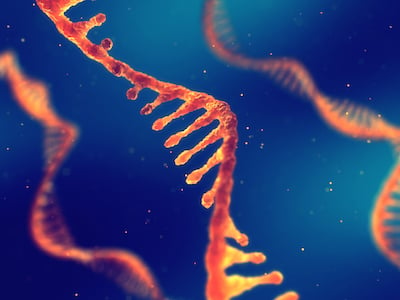It’s a relatively new world for scientists. Up until the 2000s, research funding increased steadily before reaching a plateau and dropping with sequestration budget cuts. Nowadays, scientists spend a great deal of time fighting for grants, rather than actually doing research. It’s an interesting, but sobering reality: as you progress in your science career, you may (or already do), find yourself spending more and more time planning and writing grants.
Reproducibility Crisis: Fallacies to Be Wary of and Ways to De-Bias
While the scientific community is enveloped in a reproducibility crisis (and debates as to whether there is one), there are certainly steps life science researchers can take to ensure more reproducible outcomes. We can start by limiting self-bias and improving reporting standards. But first, what is reproducibility and why is there a crisis?
Podcasts are perfect for busy, but intellectually curious people. It’s like reading, but instead of fixing your eyes to a page or screen, you can run or cook or simply relax while the podcast delivers fascinating, funny, new information straight to your brain. It’s basically like learning by osmosis! Whether you’re working in lab or you have these few months off to relax, I curated a list of science podcasts to keep you company both bench-side and poolside.
Large-scale sequencing projects have great potential to provide a wealth of knowledge to scientists and the public. Perhaps the most celebrated project of this nature is the Human Genome Project (HGP) which was completed in 2003. For many, the multi-billion endeavor was considered a “moonshot” for biology, but with its successful completion (99% of the euchromatic genome sequenced with 99.99% accuracy) came the launch of many other large-scale sequencing projects such as the Cancer Genome Atlas (2005) or more recently, the Earth Bio-genome Project (2018). The introduction of large-scale quantitative methods, such as next-generation sequencing, have also made these projects feasible.
The cliché of the pragmatic and lonely scientist gets old. Although scientists are highly analytical, their emotional range is not as limited as the media and stereotypes portray. In their work, scientists must be logical and methodical, but that doesn’t necessarily carry over to life and relationships.
It’s no secret that scientific research is becoming less of a priority to the federal government. For two decades, research and development (R&D) funding has remained stagnant or dropping, despite increases to the overall federal budget. With a growing population of scientists entering the field, a lack of funding generates a hyper-competitive and stressful funding climate. For those looking to secure funding for the first time, or simply curious about how science is funded, this post serves as an introductory guide.





-2.jpg)



